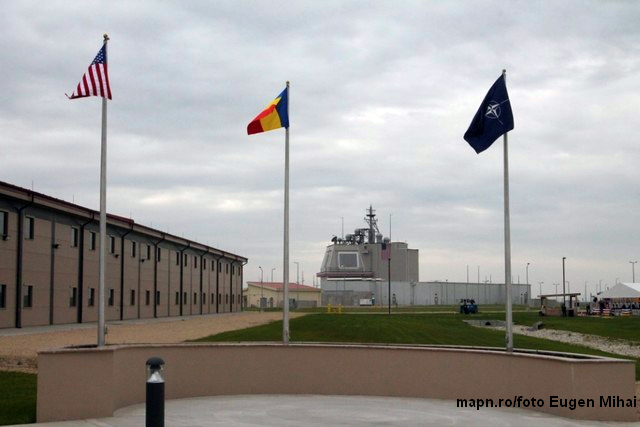Romania and the US Missile Defense Shield
The activation of the US missile defense shield in Deveselu, southern Romania, has been hailed by Romanian, US and NATO officials and criticized by Moscow.

Bogdan Matei, 13.05.2016, 15:02
The facility in Deveselu is part of a US
anti-missile defense system deployed in several allied states. The system
includes a ground radar in Turkey, four US Navy battleships fitted with
anti-missile systems in Spain, and a military command hub at the Rammstein air
base in Germany, as well as a second ground interceptor facility to be built in
Poland, which will achieve operational status in 2018.
Political leaders in
Bucharest, including President Klaus Iohannis, Prime Minister Dacian Ciolos,
Foreign Minister Lazar Comanescu and Defence Minister Mihnea Motoc, have
highlighted the purely defensive purpose of the anti-ballistic shield.
Previously, the US Deputy Secretary of State for Arms Control, Frank Rose, had
stated that the shield in Deveselu was primarily seeking to protect Europe
against ballistic short and medium-ranged missiles that could be launched from
the Middle East. Attending the opening ceremony, the NATO Secretary General
Jens Stoltenberg said: This site in Romania – as
well as the one in Poland- are not directed against Russia. The interceptors
are too few, and located too far south or too close to Russia, to be able to
intercept Russian intercontinental ballistic missiles. They are designed instead
to tackle the potential threat posed by short and medium- range attacks from
outside the Euro-Atlantic area.
The event has nevertheless fueled Western
fears regarding Russia’s potential retaliation. With the illegal annexation of Crimea and with the Federation’s constant support for break-away rebels in
Eastern Ukraine, many expect Russia to respond to this Aegis Ashore facility
with hostility. The Secretary General Stoltenberg also said that NATO saw no
contradiction between a strong defense, a firm and predictable NATO commitment
and the attempt to have a dialogue with Russia, between transparency and
actions aimed at curbing threats, given that Russia’s increased military
presence alongside NATO’s borders has given rise to more risks and threats.
Russia has criticized the installment of the anti-ballistic shield in Europe,
claiming it’s a threat to its security interests. The Kremlin spokesman Dmitri
Peskov has stated that Moscow will
respond by strengthening its own military capabilities. Military
analysts say, however, that the relations between Russia and NATO are not
likely to deteriorate, as Russia’s response to NATO’s European shield has only
been of a verbal nature so far.






























